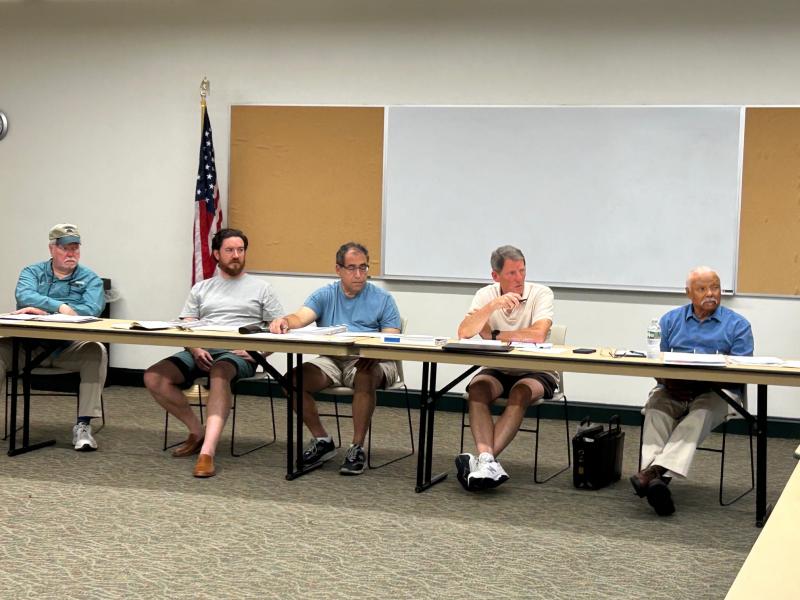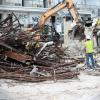Milton finance committee gives recommendations on budget
Editor’s note: The original version of this story had Perry Higgs as the sole no vote against the tax increase when it was fellow committee member David Moskowitz as the no vote.
The Milton Finance Committee, by a 4-1 vote, recommended town council move forward with the proposed 34% property tax increase called for in the fiscal year 2025 budget.
The committee’s Aug. 28 meeting served as what figures to be one of the last reviews of the budget before council has to vote on it. The budget must be in place by Monday, Sept. 30, before the new fiscal year starts Tuesday, Oct. 1.
This budget cycle has had its share of contention, largely due to the proposed 11-cent jump in property taxes from $0.324 per $100 of assessed value to $0.434 per $100, an increase of 34%. Town Manager Kristy Rogers said, as she has throughout the cycle, that the rationale for the increase is to wean the town off the use of reserve funds and transfer tax revenue to balance the budget. She said by not using transfer taxes for the general fund this year, the town will be able to add an estimated $630,000 to its reserve funds, which the town has had to use in recent years to balance the budget. Rogers said she would like to have the reserve fund built back up, in part, for use on capital improvements in the future.
The recommendation for a tax increase was part of a report by financial advisor firm PFM Consulting to improve the town’s long-range financial planning. According to PFM’s report, the town is on a path to have its expenses exceed its revenues. Rogers has said if the town continues to use reserves and transfer tax revenue to balance the budget, those sources will eventually dry up.
The budget has a $13,000 surplus, with $4.2 million in revenues – $2.5 million of which comes from the tax increase – and $3.8 million in expenditures. However, $350,000 of that revenue is restricted in its use and is subtracted from the overall surplus.
During the committee discussion Aug. 28, committee member Perry Higgs asked Rogers about the effect of new developments on the town and how it ties into the proposed increase. Rogers said the increase is meant to catch the town up with what is already built, as far as maintaining roads and keeping up with growth.
“We have not prepared ourselves for where we need to be today,” she said.
Committee member Maurice McGrath agreed with Rogers.
“This was a problem 30 years ago. They should have been increasing 1% or 2% every year or two years to build up reserve funds to get ahead of the game. But too many people didn’t want to be the ones to increase taxes and not look to the future. Now we’re stuck with what’s not been done. The bills come and we have to pay the bill,” McGrath said.
Both McGrath and Chair Larry Savage agreed that the increase was high, especially for people like themselves who live on a fixed income, but both men agreed the increase is for the greater good and future financial health of the town. Committee member David Moskowitz was the only no vote.
During the public comment period, Tom Tobin said, “People don’t understand – I don’t understand – what you’re trying to do. I don’t really see that there is a capital improvement plan for how these funds are going to be used. I’d feel a lot better about this if I understood where this money was going.”
He said the committee and town council should consider a phased approach to the tax increase instead of hitting citizens with an all-at-once approach.
Rogers said of a phased approach, “Our revenues and expenses are not meeting each other. That 11 cents is trying to fill that gap now. If we don’t do that catch-up now, we’re never going to catch up. It’s going to get so far apart that the increases are just going to get bigger and bigger.”




















































